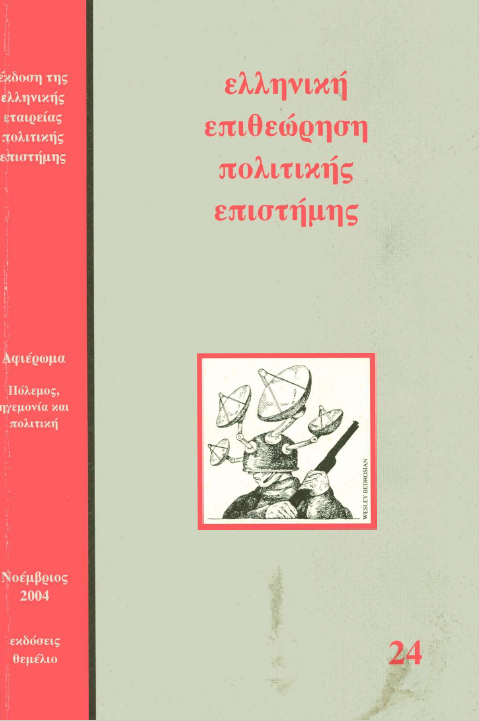State and civil society in Greece reconsidered
Abstract
This article argues that the “overgrown and inefficient State - weak civil society” stereotype which reflects the overwhelmingly prevailing interpretation of the “Greek case” in Political Sociology has to be reconsidered. Neither civil society was or is so weak nor the State was or is so inefficient as this stereotype suggests. At the beginning, the article reviews the origins of the stereotype in the post-dictatorship period, as well as the theoretical and political context in which it was formed. Subsequently, it outlines the manner in which the concepts of State and of Civil Society are discussed by social scientists today. Particular emphasis is given to the civil society debate taking place in Greece. The author clearly distances himself from the current theoretical and analytical uses of the civil society concept and proposes an alternative approach based on a Gramscian perspective. Furthermore, the article reviews recent findings of the Historical Political Sociology (particularly those of the so called state-society perspective) regarding the role of the State in socioeconomic development. The article’s conclusion is that the prevailing interpretation of the relation between state and civil society in modern Greece has to be reconsidered.
Article Details
- How to Cite
-
Βούλγαρης Γ. (2017). State and civil society in Greece reconsidered. Greek Political Science Review, 28(1), 5–33. https://doi.org/10.12681/hpsa.14660
- Issue
- Vol. 28 (2006)
- Section
- Articles

This work is licensed under a Creative Commons Attribution-NonCommercial-ShareAlike 4.0 International License.
Authors who publish with this journal agree to the following terms:
Authors retain copyright and grant the journal right of first publication with the work simultaneously licensed under a Creative Commons Attribution licence that allows others to share the work with an acknowledgement of the work's authorship and initial publication in this journal.
Authors are able to enter into separate, additional contractual arrangements for the non-exclusive distribution of the journal's published version of the work (e.g. post it to an institutional repository or publish it in a book), with an acknowledgement of its initial publication in this journal.
Authors are permitted and encouraged to post their work online (preferably in institutional repositories or on their website) prior to and during the submission process, as it can lead to productive exchanges, as well as earlier and greater citation of published work (See The Effect of Open Access).





